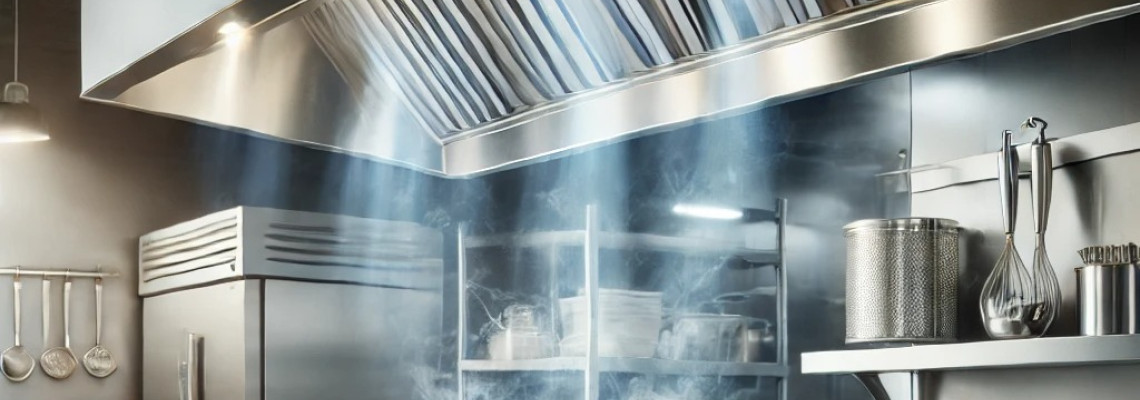
Do You Have to Have an Extractor Fan in a Kitchen? Here’s Why It’s Essential
Understanding Air Changes and Ventilation
Effective kitchen ventilation is not just about moving air; it’s about ensuring the air is properly extracted and replaced. If we were to rely on exchanging all the air in a room to remove grease, smoke, and odours, we would need a much larger fan due to the natural dispersal of particles in the air, known as Brownian motion. This makes the process inefficient and energy-intensive.
Extractor hoods, however, are designed to capture grease, smoke, and odours directly at their source. By targeting these pollutants as they rise, hoods significantly reduce the volume of air that needs to be extracted. This targeted approach makes ventilation systems more efficient and effective.
It’s a common misconception that simply installing a fan in the wall will suffice for kitchen ventilation. Without a hood to capture pollutants, these particles spread throughout the room, making it harder for the fan to remove them. Properly designed extractor hoods are essential for reducing contamination, maintaining air quality, and complying with safety standards.
1. Legal Requirements
In many countries, building regulations mandate the installation of an extractor fan in kitchens specifically designated as commercial. A commercial kitchen is typically defined as a space used for the preparation of food for sale, whether in restaurants, catering services, or other food-related businesses. The key distinction between amateur or residential use and commercial use lies in the volume and purpose of food production. If the kitchen is used to generate revenue, it’s considered commercial, and compliance with stricter ventilation, food safety, and staff welfare standards becomes necessary. Additionally, if gas equipment is used, the kitchen must comply with gas safety laws to ensure proper installation and safe operation, further highlighting the importance of extractor fans to meet these requirements.
2. Removing Grease and Odours
Cooking releases grease, smoke, and strong odours into the air. Without an extractor fan, these particles settle on surfaces, leading to grease buildup and unpleasant smells that linger. Over time, this can affect your kitchen’s cleanliness and hygiene, food safety environmental regulations have strict standards with regard to cleanliness and fire safety.
3. Improving Air Quality
An extractor fan ensures that harmful gases, such as carbon monoxide produced by gas stoves, are vented out of the kitchen. This is vital for respiratory health, particularly in busy commercial kitchens where cooking appliances run for long hours.
4. Preventing Condensation and Mold
Cooking generates significant heat and steam. Without proper ventilation, moisture can accumulate on walls, ceilings, and windows. Over time, this leads to condensation, dampness, and eventually mold growth, which can damage your kitchen and pose health risks.
5. Enhancing Comfort
Kitchens can quickly become uncomfortably warm and stuffy, especially during intensive cooking sessions. An extractor fan helps remove excess heat, ensuring a more comfortable cooking environment for chefs and home cooks alike.
6. Energy Efficiency
Modern extractor fans can be integrated with heat recovery systems, which capture and reuse the heat generated in the kitchen. This not only reduces energy costs but also minimizes the environmental impact of your kitchen operations.
What Type of Extractor Fan Should You Choose?
The type of extractor fan you need depends on your kitchen’s size and design. Options include:
- Ducted Systems: These vent air outside and are highly effective for large kitchens.
- Recirculating Systems: Ideal for spaces where external venting is not possible, these systems use filters to clean the air before recirculating it.
Key Takeaway
While you might be tempted to skip an extractor fan to save on costs, it’s an investment that pays off in the long run. From meeting legal requirements to improving air quality, reducing odours, and preventing structural damage, an extractor fan is an indispensable component of any kitchen. Whether at home or in a commercial setting.
If you’re considering an upgrade or installation, consult a ventilation specialist to ensure you choose the right system for your needs.
